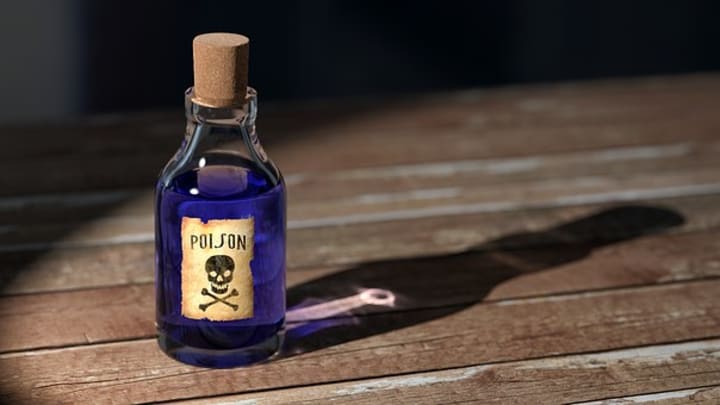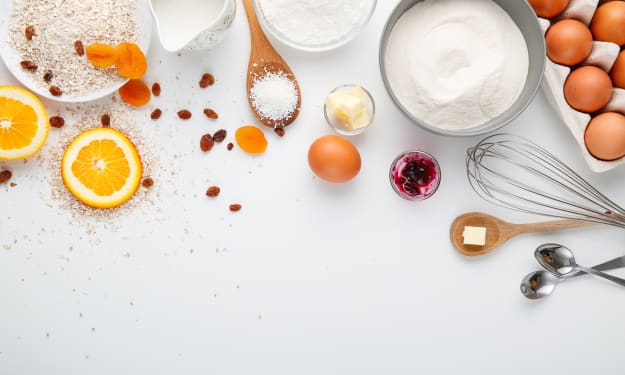Artificial Sweeteners
Which sweetener is considered healthy?

Sugar is not merely sugar. Sugar comes in many different forms and is present in all the foods we eat and the beverages we consume unless the product label reads as, "Sugar-Free."
Most foods and beverages have some sugar content disguised under different names. Beware of hidden sugars in your foods and drinks.
What I Know About Saccharin Also Known as, Sweet 'N Low, Sweet Twin, Sugar Twin
Saccharin was one of the very first artificial sweeteners to enter the marketplace. Reading the information on this sweetener states that the Food and Drug Association says this artificial sweetener is perfectly safe for human consumption.
Medical researchers, consumer safety groups, health professionals, and many private consumers disagree with the FDA findings.
Reputable reports say there are links found between two sweeteners and cancer. The FDA remains firm on their assessment that these reports are inconclusive. The other artificial sweetener found in question is aspartame. These groups mentioned believe that these sweeteners are dangerous for human consumption. In the 1980s, saccharin was listed as a carcinogenic substance by the EPA, the Environmental Protection Agency.
The Calorie Control Council did not agree with the EPA so requested them to reassess the safety of this sweetener. After this reassessment process, this product was removed from the hazards to humans list. All warning labels pertaining to saccharin were removed soon afterward.
The Center for Science still believes that this product should be removed from the market.
There are many products on the market that contain saccharin. Some of these products are listed as follows.
- Toothpaste
- Fruit juices
- Chewing gum
- Sodas
Positives
- 300 times sweeter than sugar
- No calories
Negatives
- Recent studies conclude that there is a high risk for cancer.
Aspartame a.k.a Nutrasweet a.k.a Equal
Positives
- 200 times sweeter than sugar
- No calories
- FDA reports no substantial health risks to humans
Negatives
- Reported links to cancer and a variety of other negative health effects found by three independent research groups.
- This sweetener is rated as a product to "avoid" and some research groups feel this sweetener is said to be worse than Saccharin.
A Personal Story About Saccharin
As mentioned in one of my previous articles, I had an uncle I loved and adored. This uncle loved his sweets, but unfortunately, one day in the early 1960s, his doctor diagnosed my uncle with diabetes.
Newly diabetic meant my uncle had to make some changes in his diet, or rather my aunt had to make these changes and make sure uncle adhered to the new changes to avoid having to start daily insulin shots. My uncle was sly and sneaky with his sweets and would go off his eating pattern whenever my aunt was not around to steer him back to reality. It is challenging for a person with diabetes to make these changes.
My uncle liked sugar in everything, including in his coffee. My aunt learned how to cook and bake using the only known artificial sweetener at the time, saccharine.
Uncle bought a jar of saccharine every week and set it on the dining room table to use in his coffee.
One day, several years later, uncle noticed he had a difficult time swallowing. He went to his doctors, and the doctor admitted him immediately to the hospital for testing. The doctor found that my uncle had developed cancer of the esophagus and stomach. He was in the hospital for less than a week and passed away there.
I always placed the blame on the saccharine that my uncle relied on every day to sweeten his coffee and food. We will never know, and all we can do is assume and avoid this sweetener.
The following is a list of brand names for sweeteners in today's marketplace, 2018.
- Acesulfame Potassium - Sunnett, Sweet One
- Aspartame - Nutrasweet, Equal
- Neotame - N/A
- Saccharin - Sweet 'N Low, Sweet Twin, Sugar Twin
- Sucralose - Splenda
- Stevia/Rebaudioside - A Sweet Leaf, Sun Crystals, Steviva, Truvia, PureVia
My personal preference is Stevia.
Other names for Stevia are Sweet Leaf, Truvia, PureVia, Sun Crystals.
I lean towards more natural food choices such as,
- A natural sweetener like Stevia to cook, bake, and for coffee and tea. I believe that there are good brands of Stevia and cheaper, not as good brands. Some of these brands are a mixture of sweeteners and not true Stevia.
- Raw vegetables
- Fresh fruits and vegetables
- Fresh frozen fruits and vegetables
- Meat market meats rather than prepackaged meats in the store
- Less red meat and more poultry, and fish
- Nothing white in my kitchen such as sugar, flour, salt
Stevia, also known as Rebaudioside, is a highly purified product and an isolated chemical from the Stevia plant that the FDA approves for use in food.
(Top of the line Stevia comes from Paraguay and Brazil.)
Positives
- Adds no extra calories to your diet
- Comes from a plant source
- Effective weight loss aid
- Helpful in a diabetic diet
- 200 times sweeter than sugar
- Used for centuries in Paraguay and Brazil as a sweetener, treatment for burns, colic, and stomach problems. The Stevia plant leaves served as a sweet treat.
- May be used in treating obesity, diabetes, hypertension, Type II diabetes, and endocrine diseases
- Does not change eating habits
- Does not damage metabolism
Negatives
- Possible higher blood sugar spikes with Stevia versus sugar
- Crude extracts may show risk for the reproductive, cardiovascular, and renal systems.
- May cause low blood pressure
- May cause genetic mutations and cancer
- May interact with anti-inflammatories, antifungals, antimicrobials, anti-cancer drugs, anti-virals, appetite suppressants, cholesterol-lowering drugs, calcium blockers, and drugs to increase urination
- FDA input
- Steviol glycosides Stevia plant extracts are not safe in food
- The FDA does not approve the use of the Stevia leaf or crude Stevia extracts as safe.
Sucralose a.k.a Splenda
Sucralose, made from sugar, requires a few chemical changes in the process. Sucralose or Splenda is 400-700 times sweeter than sugar. This sweetener came into the American market in 1999, and its popularity rose quickly. In addition, this product is added to an endless array of food and beverage products, its demand continues into the global cooking and baking industry.
Positives
- No calories in Sucralose. Splenda has 3.36 calories per one gram.
- Most common Sucralose product
- Sucralose is sweeter than Splenda
- Sucralose has little effect on blood sugar
- Recent studies report Splenda to be heat-resistant, thus is suitable for baking and cooking.
- May improve digestion and immunity
- FDA considers this a safe product
Negatives
- Links to health problems
- Consumers complain of a bitter aftertaste
- Splenda is not as sweet as Sucralose
- May affect blood pressure
- May affect insulin levels
- Blind studies showed Sucralose caused blood sugar and insulin levels to rise to a small degree.
- Studies show that the chemical structure of this sweetener breaks down at high temperatures and thus affects other ingredients that can increase your risk for cancer.
- Reports say it is best to avoid this sweetener when baking or cooking
- Does not have any effect on body weight
Acesulfame Potassium also is known as
Acesulfame K, or Ace K, or E950 (in Europe)
This sweetener is blended into other sweeteners on the market such as Sucralose and Splenda. Its function is to help mask the bitter aftertaste of these two sweeteners. This product is used in many food and beverage products. There is no compelling evidence found not to consider this sweetener unsafe.
Positives
- Commonly used
- 200 times sweeter than sugar
- No calories
- Does not break down in the body but passes through the urine unchanged
- Chemical structure stays stable when used at high temperatures for cooking and baking
- FDA says it is safe
Negatives
- Controversial
- Some consumers claim a disruption in metabolic processes
- Interferes with appetite, body weight, blood sugar levels
- Potential cancer risk
- Safety in long-term use is uncertain
- Could increase cancer risk
- Overall risks unsure in long-term use
- May affect brain function
- May not be suitable for pregnant women
No Apparent Regulations on Neotame

Neotame does not have to be listed as an ingredient. However, it could be listed only as E 961 on an ingredient label.
Neotame
I had no idea what this sweetener was until I started to read about it on several different sites.
The news about this sweetener does not sound good. Medical researchers say that Neotame is more toxic than Aspartame. Many sites I read says that this sweetener is hush, hush by the FDA and that consumers do not need to know about the pros and cons of Neotame. I am a consumer and I want to know why the FDA does not feel I need to know about this product. Manufacturers can use this sweetener, and they do not have to list it on the ingredient label. This sweetener may be listed as E 961.
What makes this sweetener toxic?
A chemical called 3-dimethylbutyl (listed as hazardous) makes this product much sweeter and more toxic.
There are substances in the makeup of Aspartame and Neotame that metabolize into formaldehyde. I am sure many have heard of this poison that damages nerves.
Positives
- Sweeter than Aspartame
Negatives
- Can cause many health issues
- Highly toxic
- Labeling is limited
- Used in a lot of prepared foods
- FDA has kept the use of Neotame under wraps and decided consumers did not need to know about this product
- Can be added to natural and organic products without listing it on the ingredient label
- Used in the feed given to cattle
- Subject to fewer regulations
- A plan is to replace other sweeteners with Neotame such as sucralose
- Label listings may say E 961 instead of Neotame
- This sweetener is finding its way into organic foods and meat supplies
Is one of these sweeteners any better than the rest? I suppose that manufacturers leave this decision up to you, the consumer. In the end, you buy and use what you feel is right for you and your family.
I will stick with a high grade of honey and the best quality Stevia I can find on the market to sweeten my foods and beverages.
Reference Only
- www.sharecare.com/health/artificial-sweeteners/what-common-brand-artificial-sweeteners
- www.livestrong.com/article/465273-which-is-worse-saccharin-or-aspartame/
- www.livescience.com/39601-stevia-facts-safety.html
- Journal of Medicinal Foods
- www.healthline.com/nutrition/sucralose-good-or-bad#section7
- www.medicalnewstoday.com/articles/318604.php
- gaia-health.com/natural-health/food/neotame-new-neurotoxic-sweetener-fda-says-no-label-needed-not-even-organics/
About the Creator
Carolann Sherwood
Professional nurse for over 40 years
Owned a children's daycare, eight years
Owned an upper scale clothing resale shop
A freelance writer
Editor since 2010 on a writing platform site
A published author, "Return To The Past" available on Amazon






Comments
There are no comments for this story
Be the first to respond and start the conversation.